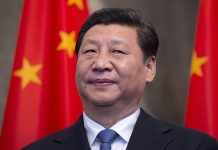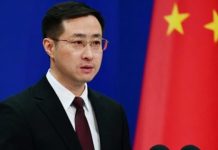The business environment of a place is not only reflected in the system of entry, but also in the way it is administered, including enterprise-related inspections. As China has become more open to the world, its business environment has improved notably from the perspective of its system of entry. The country has implemented a negative-list approach for market access, which specifies areas where market access is restricted, lowered access thresholds, and created transparent market rules and a fair market environment. However, in recent years, some businesses have reported problems regarding supervisory inspections.
In early October, the Ministry of Justice and the National Development and Reform Commission solicited public comments on the draft of a private economy promotion law. Most comments focused on inspections, commonly describing them as excessive, arbitrary and repetitive, and as negatively impacting the normal business activities of enterprises. Calls are increasing for avoiding unnecessary inspections on private businesses.
Inspections of the production and operations of enterprises are necessary to ensure safety, safeguard the interests of employees and protect the environment, and are implemented in accordance with the law. However, due to the overlapping functions of government departments, in practice, enterprises may encounter excessive and repetitive inspections, which affect not only their operations, but also local business environments. Under these circumstances, the best method for regulating enterprise inspections has become an important issue.
Regulating administrative inspections on private enterprises has been included as an important reform measure in the resolution adopted at the Third Plenary Session of the 20th Communist Party of China Central Committee in July. The resolution, passed by senior Party officials, codifies the governing Party’s vision for further comprehensive deepening of reform. Drafted based on extensive research and consultation, it represents consensus across a wide spectrum of Chinese society. The proposed reform measures will be internalized in Chinese decision making at all levels.
While the national law on the promotion of the private sector is still in the making, some local governments have already formulated policies to avoid unnecessary inspections on private businesses, including in the Beijing Economic-Technological Development Area and in Hangzhou, capital of Zhejiang Province.
Avoiding unnecessary inspections improves China’s business environment by reducing the operating costs of enterprises, improving their operating efficiency. This policy will help build a law-based, internationalized and convenient business environment, and provide a stable, fair, and more transparent development environment for enterprises. In addition, reducing unnecessary interference will enable enterprises to better focus on their core businesses, so as to improve their competitiveness and vitality. In the meantime, through the coordination of inspection plans between different supervisory departments, the introduction of “one-stop inspections” will not only improve the efficiency of supervision, but also avoid non-standard inspections and other illegal behaviors.
Streamlining inspections will lead to improvements in state governance capabilities. It requires government departments to conduct reforms to optimize the division of responsibilities between them and explore ways of better integrating the roles of the government and the market. This will not only improve the efficiency of related government departments, but also enhance their credibility.
Yet avoiding unnecessary inspections is easier said than done. Some conduct inspections too frequently for illegal gains, and sometimes undertake arbitrary inspections using random excuses. Therefore, implementing this policy requires the government to formulate detailed rules, strictly manage the supervision teams and keep power within the cage of systemic checks. –The Daily Mail-Beijing Review news exchange item





